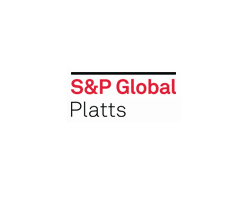China's Magnesium Price Direction in 2022 Hinges on Coal, Says Magontec CEO

By Joshua Leung
December 3, 2021 - Price direction in China's magnesium market in 2022 will hinge on coal prices, as the domestic magnesium sector relies heavily on coal-powered energy, the CEO of key magnesium producer Magontec told S&P Global Platts in an interview.
Australia-based Magontec sources pure magnesium from suppliers in Fugu and Xinjiang for its alloy casting in Qinghai, produces magnesium alloys and anodes in China, Australia and Germany, and recycles magnesium in Romania.
"The Pidgeon process requires energy from coal [mostly coke offgas]. There are very few Chinese Pidgeon plants that use alternative sources," Magontec Executive Chairman and CEO Nicholas Andrews told Platts.
When coal in China was priced at Yuan 800/mt ($126/mt) in late 2020, pure magnesium prices were as low as Yuan 12,500/mt.
When coal prices surged to Yuan 2,200/mt in 2021 and China mandated energy usage limits, magnesium prices raced past Yuan 50,000/mt, although the true cost of production at that stage was probably around Yuan 35,000/mt, Andrews said.
China in September began rationing industrial power consumption amid coal shortages, which sent prices surging. Magnesium prices in September touched an all-time high of Yuan $71,200/mt, according to Platts data.
China's current mandated price for coal at Yuan 1,200/mt appears to have reduced the underlying magnesium cost of production to Yuan 25,000-30,000/mt, with market prices in the mid-Yuan 30,000s/mt, Andrews said.
It's fair to say that Chinese coal output and imports could quickly return to higher levels, which would lower prices, but it is doubtful the Chinese government would accept a return to higher emissions, he added.
"We think Yuan 12,500/mt is unlikely to be seen again. The domestic coal sector is undergoing significant structural change and higher prices are a likely outcome. If the pressure of higher energy prices increases domestic inflation, maybe the government will attempt to reduce coal and energy prices," he said.
"Reversing the ban on Australian [coal] imports ...may further relieve Chinese coal and energy price pressures. Given the global outcry when magnesium prices last spiked, it seems likely that the Chinese government will seek to manage coal at around current prices, suggesting a magnesium price of Yuan 25,000-30,000/mt," he added.
China is a major supplier of magnesium globally and markets like the EU depend heavily on the supply, sourcing more than 90% of its magnesium requirements from China.
All-time high magnesium prices have created panic among global buyers since September, with a group of European metals industry associations in late October warning that the industry could soon run out of magnesium stocks.
No Substitute
Despite some analysts saying high magnesium prices could prompt China's downstream sector to cut magnesium usage, Magontec sees no substitute for magnesium in the aluminum alloying process.
With 40% of magnesium going to the aluminum industry, there is no immediate or obvious substitute for magnesium in the aluminum alloying process, Andrews said.
He also sees no substitute for magnesium in the titanium or steel sectors.
About 65% of magnesium demand can be deemed inflexible. The balance 35% goes to the magnesium alloy sector, and most of this to the auto industry, according to Magontec.
Steering wheels, probably the largest application by weight, are not easily changed as magnesium is specified for its ductility and other mechanical qualities, Andrews said.
He noted all steering wheels were made from magnesium, and while other auto applications could possibly be moved to aluminum, "this also depends on medium-term movements in the aluminum price, which has also risen sharply on similar Chinese energy cost issues."
According to Magontec, the standard production run for an auto model is over five years and a change from magnesium to aluminum when a model is in production is unheard of, as it would require resetting and certification that comes at a high price.
The most significant threat for magnesium is that some current applications may not be specified as magnesium in future auto models, the CEO said.
Aluminum is the only viable alternative, Andrews said, adding that carbon fiber was a high-end product that was not recyclable and unlikely to become a threat to magnesium.

